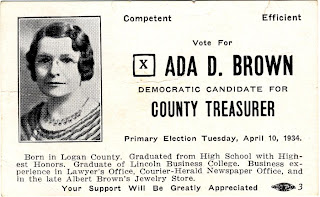
It's rare that I'm able to document the date on which I took a picture, but in this case I had a trip diary!
(And I owe my ability to post the picture in this quality -- I took it with your basic '70's Instamatic -- to Larry who was able to make me a digital image from the original negative.)
--
EXPANSION posted 10/10/08:
The trip was a wonder to take, for one as provincial as I was, but very typical-tourist to tell about. Mom and I went. She'd been crossing the state of NC every week, trying to help her parents manage at home after her dad's stroke. I was between college and library school, and was due for a vacation after a year on the job answering phones at the local art museum. My brother was a senior in high school, plenty involved in his own, mostly environmentalist, activities, my grandparents were doing OK. It was a now-or-never opportunity that we had to jam into 2 weeks.
That Salisbury day trip was the most memorable single day for three reasons. One was Stonehenge, with a wonderful, druidically gloomy sky overhead (the photos are pinking-out - I need to preserve them).
Recent discoveries indicate that Stonehenge wasn't really so gloomy, but I still loved the mood the stormy clouds imparted.
Second and third things that made 10/9 special were both in Salisbury Cathedral, where I got to see an official copy of the Magna Carta, and the
oldest working clock in the world. That was cool!
Other highlights: Tower of London, where I was touched by Lady Jane Grey's name carved probably by her equally young (though rather whiny) husband, Guildford Dudley, while they were imprisoned for treason : a mournful little
"IANE" in the stone wall. I'd played her in a one-act play during high school, and look the part too, so she always kind of intrigued me.
This rosary bead, in the British Museum, blew me away, huge for a "bead" (that photo may be enlarged a bit from life, but not a lot!) yet carved in such detail that the delicacy of the carving was breathtaking.
Harrod's. Plays. I noticed at the time that almost all the plays were of British origin but there were few musicals on and most were US imports.
We attended magnificent Sunday services in Westminster Abbey, and i remember the graves along the cloister, especially a group of monks who died of the plague in 1349. We also had trouble finding a place to eat lunch! So many places were closed on Sundays, which I found odd for a major city. Wonder if it's still that way. We ended up in, I'm not making this up, The Tennessee Pancake House.
And I learned
never ever to get caught in a rain shower in Trafalgar Square without cleated shoes, because the thick layer of pigeon droppings turns into a slick more treacherous than standard mud.
Mom was an English and creative writing major, I was an aspiring writer and we did
not go to Stratford-Upon-Avon! It was closed. Well, I mean, you know, not
closed, but off-season, no events, tour days didn't work with our very tight schedule. "We'll just do that next time," we said, 30 years ago.
It was a fast, richly experienced couple weeks. I may eventually post more pictures but the quality is very low, and Larry, would have to spend a day working on them for me (my scanner won’t do negatives), so....eventually. And eventually I'll get one of those wonderful CoolPix thingies too.
































